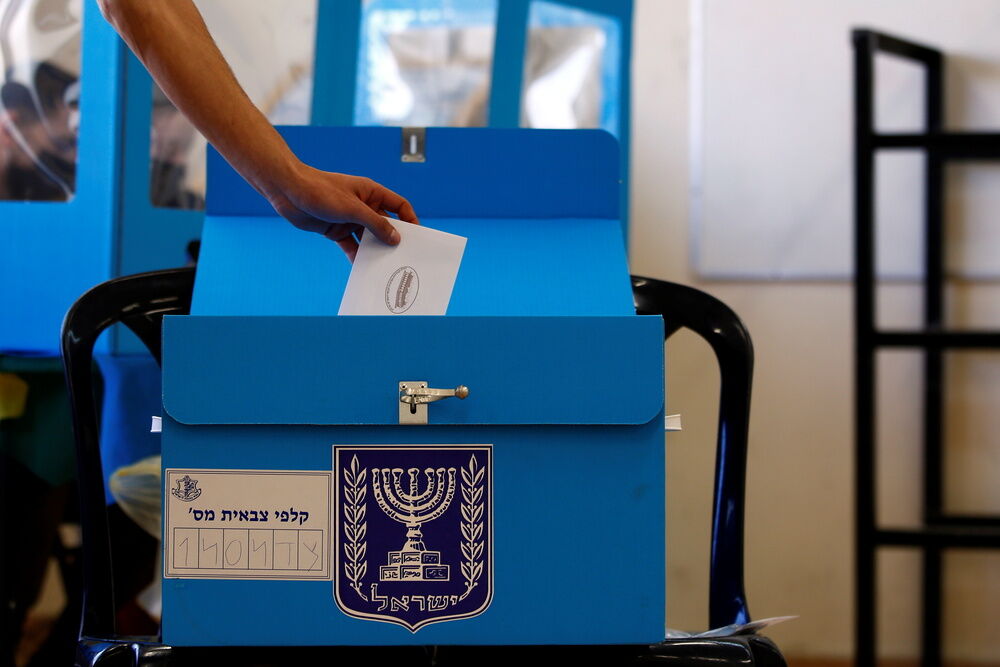Dreadful deadlock
Thanks to the split in public opinion over Netanyahu and the diverse array of political parties Israel has, prospects of a stable government remain elusive

Political turmoil in Israel is refusing to die down. The country goes for its fifth election in less than four years with Arab parties emerging as a lightning rod, possibly pushing a further rightward shift among the voters, boosting the fortunes of former Prime Minister Benjamin Netanyahu.
Israeli lawmakers last Thursday voted to dissolve the Parliament, following the collapse of Prime Minister Naftali Bennett's ruling coalition, and fixed November 1 as the date for the next election. Foreign Minister Yair Lapid, a centrist, has become the caretaker prime minister till a new government is formed.
Their eight-party coalition included politicians from the centre, right and left, and an Arab party for the first time in Israel's history. But deep disagreements among the partners over issues like settlements in occupied the West Bank, treatment of Palestinians and other matters led to the collapse of the government.
Facing corruption charges, 72-year-old Netanyahu was ousted as the Prime minister just over a year ago by Bennett's unlikely coalition of parties from both the right and left as well as from Israel's Arab minority. He hopes to win a sixth term in office despite being on trial for corruption charges.
Netanyahu, the longest serving prime minister of Israel, claims that the charges of bribery, fraud and breach of trust in three separate corruption scandals are nothing more than a witch-hunt by the left — supported by the judiciary, law enforcement agencies and the media — in an effort to keep him away from power.
Speaking in the Parliament ahead of the vote, Netanyahu, who heads the largest and the most cohesive right-wing Likud party in the country, said: "They (the coalition) promised changes, they spoke of healing, they carried out an experiment – and the experiment failed."
"That's what happens when you take a fake-right along with a radical left, and mix it up with the Muslim Brotherhood (Arab-led party) Joint list."
Earlier, when Bennett announced his decision to go for a fresh election, Netanyahu said it was "great news for millions of Israeli citizens" and that his conservative Likud party would seek to form a "wide national government."
Bennett's government had lost its majority in the 120-member Parliament (Knesset) about two months ago when a member, Idit Silman of the coalition's hardline Yamina party, announced her departure over what she called a compromise made by the Prime Minister to keep the alliance afloat by trampling Jewish tradition.
Recent frictions over the renewal of a measure extending legal protection for Jewish settlers in the West Bank caused fresh divisions, with some Arab members of the coalition threatening to exit the arrangement if the government could not get the settler legislation passed.
In the country's 74-year history, no single faction has won a majority in the 120-member Knesset. As a result, almost after every election, smaller parties have emerged as kingmakers.
Israel has held four inconclusive elections between 2019 and 2021 that were largely referendums about corruption scandals that plagued Netanyahu's ability to rule while on trial, in an unprecedented era of political gridlock.
One of the reasons for this is that Israel is deeply divided—and mostly over whether Netanyahu should be prime minister. It is also because Israel's political system consists of an ideologically diverse array of parties that have to form alliances and sometimes break them to get their pound of flesh.
The fresh election comes as Israel deals with the aftermath of one of the deadliest clashes between Palestinians and Israelis at Jerusalem's holy sites, and an escalation in tensions with Iran.
Netanyahu, who in 1996 became Israel's youngest prime minister, and his Likud party came first or a narrow second in all of the four elections held since 2019. But he has never been able to get a right-wing majority because some of his ideological allies declined to partner with him.
The writer is a former Editor of PTI and served as the West Asia correspondent for the same. Views expressed are personal



